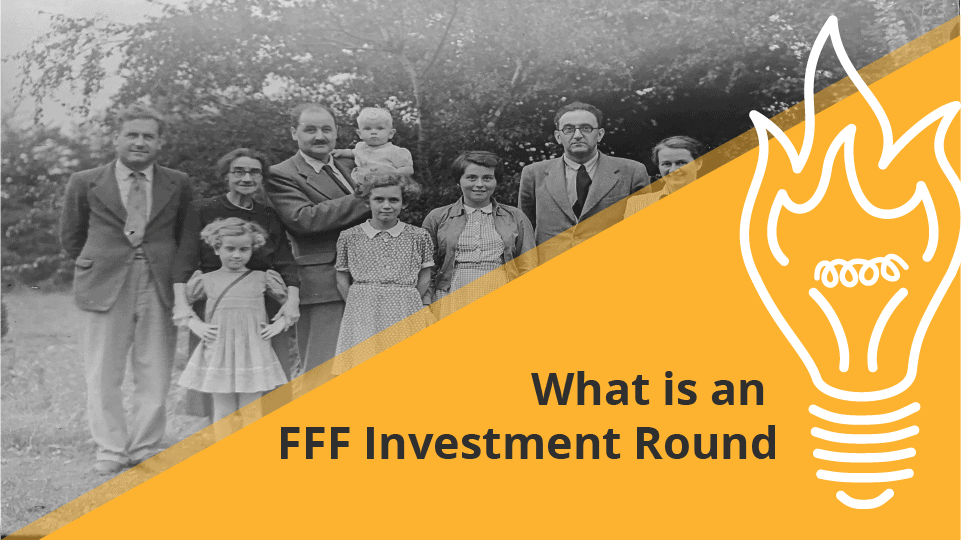What is an FFF Round? (Investor Pitch 101) – Summary
- Article Overview
- Different Rounds with Different Names
- Why Do They Call it the FFF Round?
- What are the Upsides to the FFF Round?
- Covering the up-front costs
- Why Not Just Bootstrap my Business and Skip Funding?
- When is Funding Critical to Startup Success?
- How to Overcome the Downsides of the FFF Round
- Managing Expectations and Maintaining Your Relationships
- In Good Times and in Bad
- Set Clear Expectations with any Investors Especially Friends and Family
- Managing the Growth of Your Business and Later Funding Rounds
- Wrap-up
Article Overview
So, What is an FFF Round?
The FFF round is short for the Friends, Family and Fools round. It’s kind of a joke, but it actually has a basis in reality. This round is usually in the very early stages of a startup’s fundraising life-cycle. And without it, most startups that we know as corporations today would have never made it.
Different Rounds with Different Names
In the startup community there are many different rounds for funding and they all have different names. Back before or shortly after the dot-com bubble, it used to be more consistent.
There were different names for the different rounds and everyone prescribed to those. Nowadays there are a lot of different rounds and not all companies go with the same naming structure, so the round names don’t really mean as much.
BEFORE: FFF Round >> Seed Funding >> Series A >> Series B >> Series C >> IPO
AFTER: FFF Round >> Seed Funding > Seed Plus >> Series A >> Bridge Round… etc.
But in general, the FFF round is referring to one of the first or the first round of funding that a startup gets. This is because when you are in your very early stage, you are relying on your personal relationships to be able to get funding. You haven’t seen success yet. You haven’t built an MVP (minimum viable product). You haven’t really gotten anywhere with your company – yet. You have no tangible proof to point to, and say “We are going to be successful, don’t worry! There is a return in this investment”.
Instead you are saying, “Here’s my concept. It is really good, and the opportunity is big. I think I know what I am doing. Invest in me and I will make this happen”. That is why the FFF round tends to be the very first funding that a company will receive.

Why Do They Call it the FFF Round?
Friend and family are the most likely source of financing for an early stage startup because they don’t require as much proof to help their loved ones out. They hope their money will bring some mutual benefit to themselves and their friend or family member who has the idea they want to back.
Fools are likely to enter into this stage, because most investors or incubators would want some sort of traction before they invested their limited funds in an unproved concept. The further down the funding cycle you go, the more proof is required that your business is actually a success and has the potential you are claiming it does.
The FFF round has a ton of failure potential to it. But we always hear stories like, ” 7 years ago, AirBnB wanted us to back them during this stage and now we regret not doing that.” Although regrettable, these more savvy investors are likely to be more successful in the long-run not financing extremely risky deals with no proof.

What are the Upsides to the FFF Round?
There many upsides to getting early funding a specific companies that needed to get past the unknowns.
Covering the up-front costs
There is a ton of information out there about funding. From Shark Tank to Incubators like Y-Combinator, startups talk a lot about funding because “startups” have a lot of up-front costs. When you have these up-front costs, there are many obstacles to overcome before you actually start making money. It would be very hard for most companies to succeed unless they had some base of funding. Where would they get this support? Not Shark Tank, not Y-Combinator, not the bank, and definitely not Warren Buffett.
Unless you are digging into a giant savings account, you are generally raising funds from someone else when you need the up-front kind of capital. Even when you have a giant savings account full of money it’s probably smart not to use it to invest fully in your own startup. There some level diversification that even you as a startup founder need in your life to maintain your stability and financial health.
Why Not Just Bootstrap my Business and Skip Funding?
So it’s obvious that most startups need some early capital to get things going. But why do they need it? Why can’t they just get customers and pay for themselves with revenue? Well sometimes they can depending on the business model and type of product or service that they’re offering. When startups are able to do this revenue source funding, it’s called bootstrapping. Service based businesses lend themselves to be more scalable and can more easily handle the organic growth and development themselves, without funding in some cases.
When is Funding Critical to Startup Success?
Funding becomes especially important when you have, for instance, a scalable consumer technology or product. These two business models require tons of upfront marketing and product development costs that would be impossible to wait on customer revenue to build. The old “if I build it they will come” equation comes into play here. Getting customer feedback on what will make them come to what you build is expensive. So is launching your product and changing behavior.
The FFF Round can mean the difference between getting to a proof of concept stage or not. Proof of concept and prototyping stages are where the more savvy investors are going to be playing. If you can get successfully to this stage, the later rounds of funding are available to you with less hurdles.
In general, early stage rounds like Seed Funding and FFF are very valuable for companies who really need that money up-front to be able to get to the next stages or to be able to try to grow the company organically from that point forward.

How to Overcome the Downsides of the FFF Round
Although it might be easier than impress investors and proving your concept, the FFF Round does have some hidden costs and risks that you should be aware of as a startup founder.
Managing Expectations and Maintaining Your Relationships
First of all these people our investors. They are not just giving you money. Whether friends, family, or fools, these investors are expecting a return on their money. They are also expecting that return to happen in a specific time-frame. So, it’s extremely important to manage the expectations and work on maintaining relationships regardless of what happens in the business.
FFF investors likely have a relationship with you. We think this relationship is definitely on the line once money gets involved. The business relationship that the money partnership causes can easily turn friends into enemies and create rifts in otherwise healthy families. You might still have a place at Christmas dinner, but you might not be getting much this year in the way of hugs or gifts : ). We think putting long standing relationships on the line with risky concepts is a dangerous proposition and it takes a special type of relationship to be able to withstand the pressures of doing business together. Not to mention investing money in something.
In Good Times and in Bad
And don’t think it’s just when things are going bad that this happens. It’s also when things are going really great but not at the same pace that someone was expecting it to go. There are many reasons why conflict happens in business. And it’s hard to manage expectations with a lot of investors that are close to you. Especially when they are investing in an unproven model and you.
Considering the FFF Round for your Startup? Click to see an in-depth article on the Pros and Cons of the FFF Investor Round and what it really means to take your “Uncle Frank’s” money.

Set Clear Expectations with any Investors Especially Friends and Family
If you are going to go through an FFF round make sure the you can get your expectations clear. Make sure the investors know that this is entirely risky and it might not work out. This way no one will get blindsided or give you their last dollar expecting an immediate return.
Managing the Growth of Your Business and Later Funding Rounds
Another key consideration that can be a downside in the long run for your business is having too many investors in these early rounds. Savvy investors typically don’t want to invest in a company where there’s too many cooks in the kitchen. With your Cap Tables flooded with early investors, you might turn off otherwise interested investors because they’re just too many parties involved with the transaction. There’s ways around this, but in general it’s something to keep in mind.
So if and when you do an FFF round, consider not letting too many people into your rounds. As your company gets bigger and you add more and more investors to the pile it will look less attractive to have a lot of people on that list.
Of course, we recommend talking to a lawyer to a lawyer when thinking through anything that deals with raising funds.
Wrap-up
So not every business grows organically. And for those who don’t they need funding to get things off the ground. Getting money from friends and family in an early FFF round is a great way to get financing but does come with some clear risks and benefits.
If you have any thoughts on the FFF round or other types of rounds, we would love to hear about it in the comments below. Also, there is a link down there if you have any new ideas for Pitch Hacks.
Happy Pitching!
Suggest an Upcoming Pitch Hack here: https://info.pitchdeckfire.com/pitch-hack-suggestions
For even more pitch hacks visit us here: https://resources.pitchdeckfire.com/tag/pitch-hacks
**Subscribe for more Pitch Hacks in your inbox every week**
Need help with your pitch? Pitch Deck Fire specializes in pitch deck design and presentation preparation. Sign up to speak to a project lead about your pitch deck, sign up here: https://pitchdeckfire.com/pitch-deck-project-initial-steps/






